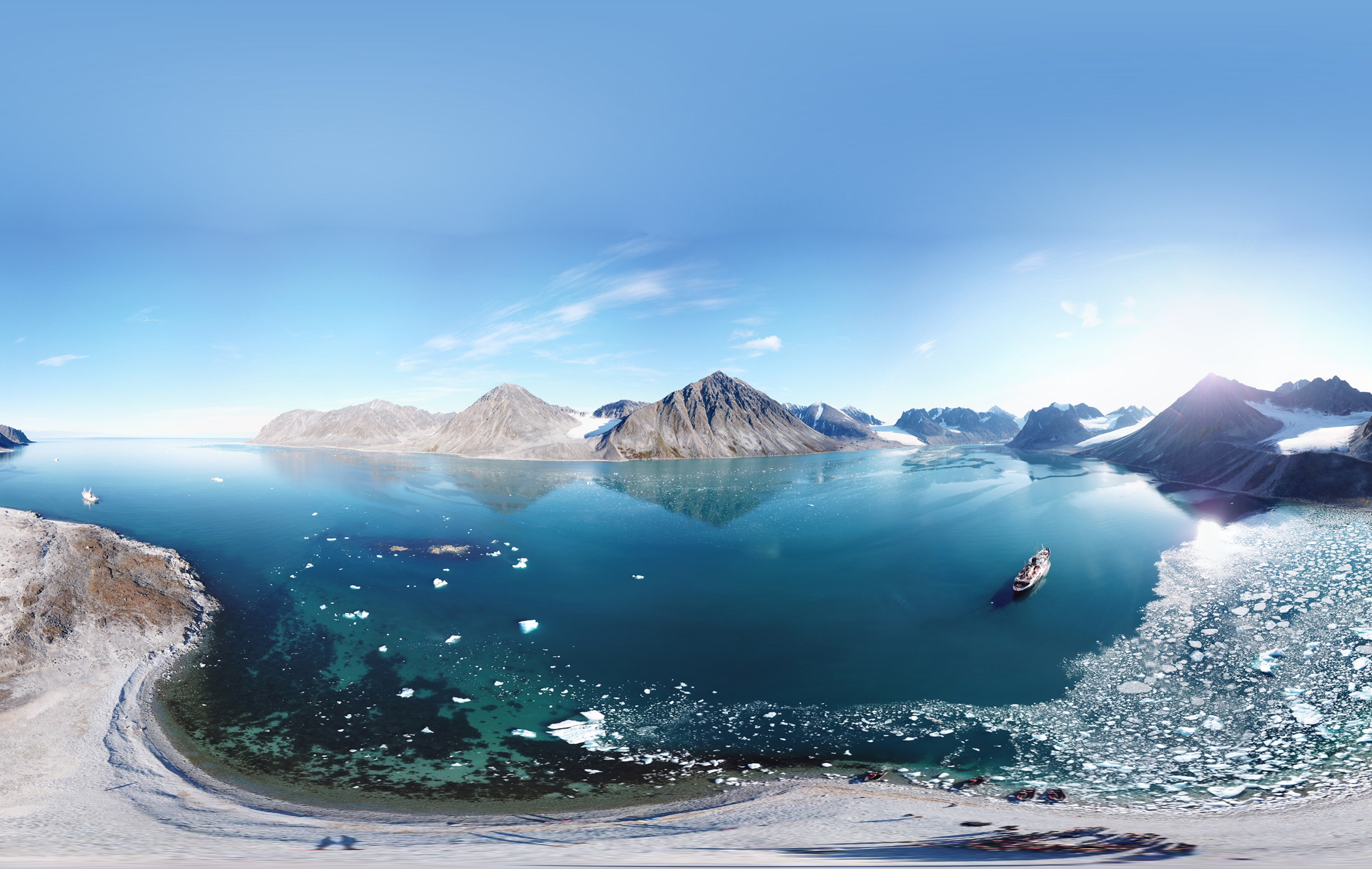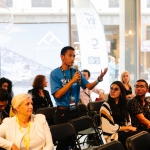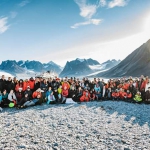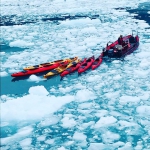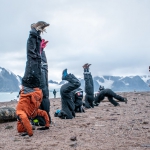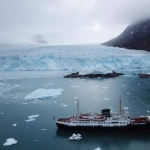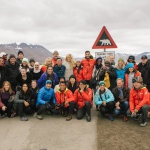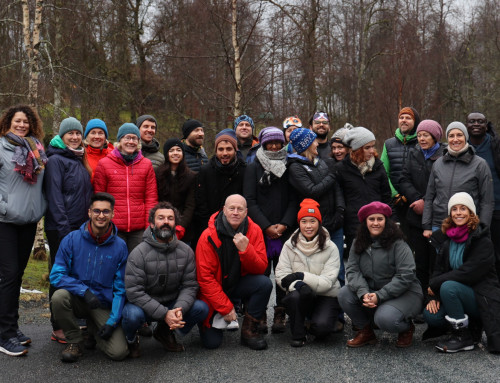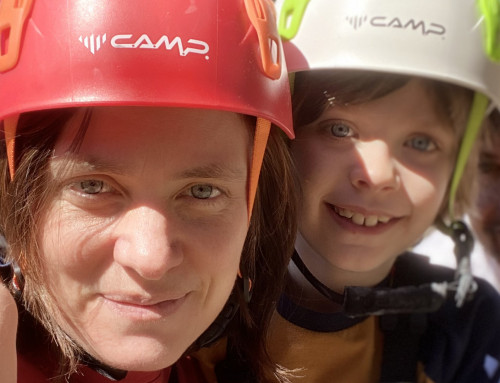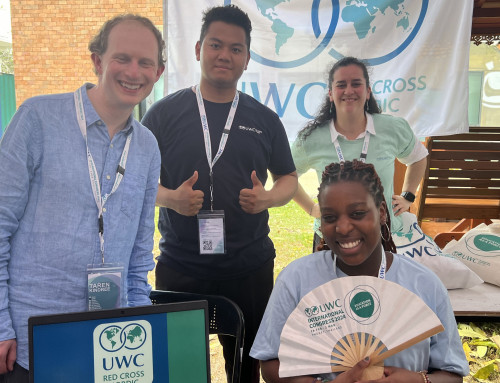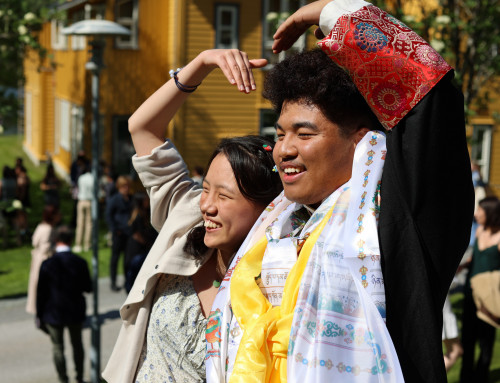There are trips, and then there are the trips that change you. I found out the application at our UWCRCN homepage last term. I did not expected to be on the Arctic with 100 brilliant persons – young and old – from all sectors and all continents a few months later. We spent four days on a veteran ship – undisturbed – with no wifi or cellular coverage. Together we explored our arctic surroundings and engaged in discussions about the most important challenges of our time. Before flying to Svalbard, I gave a speech at the introductory Oslo conference about learning, together with Christopher and Emma Stoks. In addition, there were also world famous architect Bjarke Ingels and Westworld-creator Jonah Nolan in a conversation about man, machine and design. Tina Kulow (Facebook), Katharina Borchert (Mozilla) and Michael Geer (AncorFree) discussed the polarization of social media, the power of groupthink, and its effects on democracy and elections. I met a family that sold everything to live with native tribes, and heard about the latest findings in the Science of Happiness from Oxford-professor Jan-Emmanuel De Neve – to mention a few of the impressions from the voyage.
This was an amazing trip, where we could see polar bears from the top of the ship, dolphins and whales jumping just outside of the window. We listened to a presentation on how earth took form, which stimulated thought about how all living and non-living creatures are connected with each other. We got to know Russian history with Svalbard as a starting point and also about the history of whales as a species. It was saddening to hear that everyday we are losing a number of species. We also talked about our diets and about vegan, vegetarian and non-vegetarian approaches. It was rewarding to engage with experts in the growing field of Artificial Intelligence and how it can affect us. I cannot still believe that I – swam across the 80th degree at +4 degree Celsius temperature like a polar bear; kayaked on the north pole on pieces of ice, observing the glaciers falling down with a noise; engaged in discussions about how we should get inner peace.
Was it all peace and serenity? Well, we did find pieces of plastic on the North Pole, which was a shock for everyone. In a speech, the director of a European research centre said that every year 400 meters of ice disappears from behind the research stations in Ny-Ålesund, Svalbard due to temperature rises.
The journey sensitised me to what I feel for both nature and human behaviours. A big thank you to Silje Vallestad and Camillia Hagen Sørli for me to have this opportunity to engage together with so many exiting persons in such an environment. – And this is just the beginning of the Future Talks.
Hari (Nepal, ’17)

